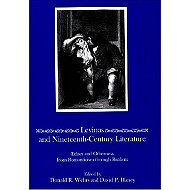|
Levinas and the Nineteenth-Century Literature: Ethics and Otehrness from Romanticism through Realism
|
Edited by: Donald R. Wehrs
and David P. Haney
|

|

This collection rereads British, American, and European nineteenth-century literacy texts, from Wordsworth and Coleridge to Dickens and Eliot, in light of Emmanuel Levinas's groundbreaking ethical philosophy. Reconsidering issue central to nineteenth-century studies in relation to Levinasian post-deconstructive themes while tracing his concerns with language, material historicity, and selfhood back to nineteenth century writers, genres, and debates.
In the first section, "Levinas and Romantic Subjectivity," A. C. Goodson
Considers the "wise passiveness" of Wordsworth's "poetic of recognition" in relation to Levinasian ethical subjectivity, David P. Haney links Coleridge's and Levinas's reflection upon tensions between a ethics of recognizing otherness and a politics of valorizing equal treatment of all. […]
In the second section, "Levinas, Literary Form, and the American Experience," N.S. Boone notes how Levinas's analysis of totalizing thought allows Poe's short stories to be read as contesting American culture's unqualified valorization of freedom, especially as articulated in Emersoinan Philosophy, […]
In The third section, "Levinas and the Nineteenth-century Novel", Donald R. Wehrs argues that Levinas attunes us to notice how Austen's indirect free style dramatizes ethical responsibility to the Other motivating the sense and directions of discourse. […]
|
|
